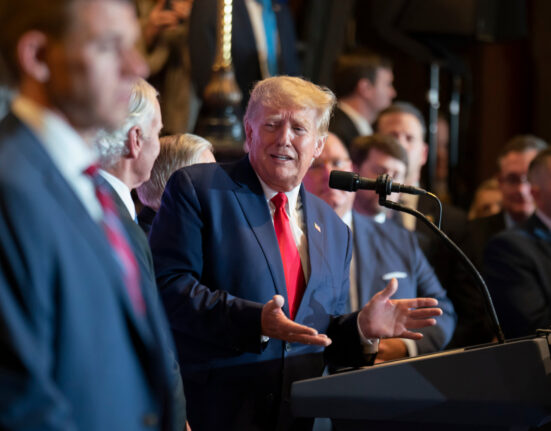The Australian stock market faced a tumultuous day as mining giants took a hit and trading partners felt the pressure from the Trump administration’s tariff threats. The Reserve Bank of Australia (RBA) added to the uncertainty by surprising investors with its decision to hold interest rates steady, causing fluctuations in both shares and currency values.
In the wake of the RBA’s unexpected move, market analyst Josh Gilbert expressed his surprise, stating,
“Holding too tight for too long could unnecessarily hurt the economy.”
Many had anticipated a rate cut amidst declining inflation and mixed economic indicators. Despite this decision, there remains speculation about potential future cuts throughout the year.
Harry Murphy Cruise, head of economic research at Oxford Economics Australia, emphasized the importance of considering external factors like tariff uncertainties when making monetary policy decisions. He remarked that while certain aspects of the economy show strength, it is crucial to be prepared for any downturns that may arise.
The global market landscape was further shaken by President Trump’s renewed trade war threats towards numerous countries. His letters warning of increased tariffs if deals were not struck heightened tensions across international markets. This led to broad declines on Wall Street with key indices experiencing significant losses.
Amidst these developments, major sectors in Australia saw varied performances. Consumer discretionary companies like Wesfarmers fared better post-announcement while consumer staples such as Woolworths and Coles faced declines. Mining giants like BHP and Rio Tinto were particularly vulnerable due to their exposure to global economic conditions following a drop in iron ore prices.
Energy stocks also experienced losses alongside healthcare companies like CSL. Woodside, Yancoal, and Ampol dipped while Santos managed slight gains against the trend. These fluctuations underscored the intricate interplay between domestic policy decisions, global trade dynamics, and industry-specific challenges impacting stock performances.
Looking ahead, experts suggest that market movements will hinge on various factors such as the implementation of proposed tariffs and ongoing negotiations between trading partners. The looming threat of escalated trade tensions casts a shadow over future economic prospects globally, emphasizing the need for careful monitoring and strategic planning within financial markets.
As investors navigate this complex landscape marked by geopolitical uncertainties and shifting monetary policies, staying informed about emerging trends becomes paramount for making sound investment decisions.









Leave feedback about this